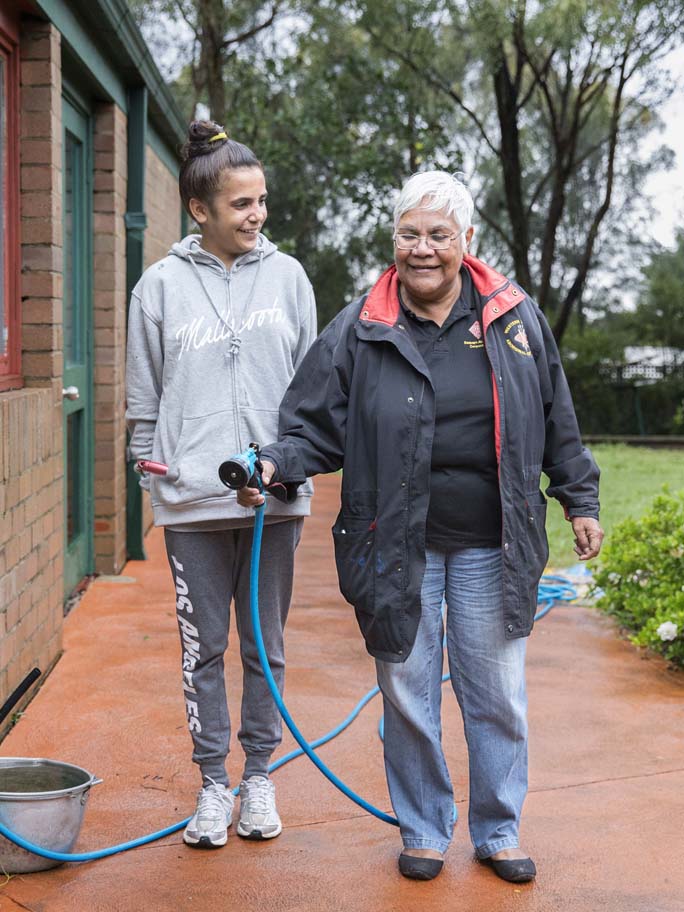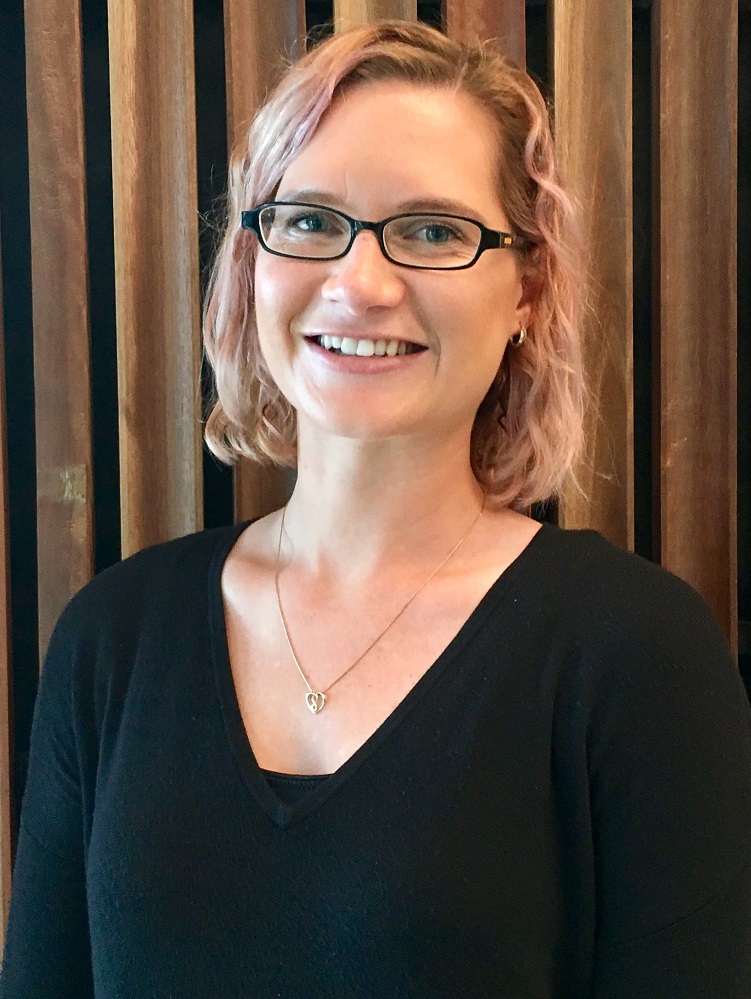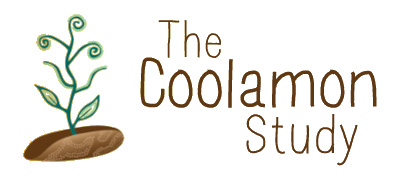Background: Why the Ironbark project?
Aboriginal Elders are the keepers of our cultural knowledge, they are the educators in our communities teaching our young, supporting and maintaining connection to country and an integral part of Aboriginal culture.
Many older Aboriginal people are also the caregivers of their grandchildren and are seen as mothers and fathers rather than grandparents.
As the Aboriginal population ages, it is important to provide programs that meets their needs and supports older Aboriginal people to continue their important role in community.
The Ironbark: Standing Strong and Tall program is a falls prevention program developed in partnership with Aboriginal communities in NSW. It was then tested with six communities and the evaluation found:
- 98 Aboriginal people registered for the program, ages ranging from 40-90 years old, mostly women (53 female participants, 69%).
- The program significantly improved strength and balance
- There was a significant average decrease of in average Body Mass Index
- There was a noticeable increase in participants becoming involved with social activities and outings, including walking groups.
All participants enjoyed the program, and all were willing to recommend the program to others. The most popular element of the program was the Yarning Circles.
The Ironbark trial has now been funded by the National Health and Medical Research Council to test if the Ironbark program prevents falls, and improves the health and wellbeing of older Aboriginal people.
We also aim to contribute to the evidence that community based, Aboriginal led programs are culturally appropriate and acceptable to Aboriginal people across other states, and are cost effective.
For further information:
First Nation Elders’ perspectives on healthy ageing in NSW, Australia article

“Well, the program was actually more then what I thought it would be. It was very good. The information was great combined with the Yarning Circle. The people who come feel like a family now, it has helped with loneliness and death within our group. Each of us had each other it has enhanced our lives. We hope to keep coming so we can have our yarning and exercises.”
IRONBARK PROGRAM PARTICIPANT
Psychosocial implications of paediatric burn injuries and care for Aboriginal and Torres Strait Islander families - Hayley Williams
Abstract
Aboriginal and Torres Strait Islander children and adolescents are disproportionately affected by burn injuries, yet often omitted from burns literature or inadequately portrayed under Western frameworks.
We highlight and address the urgent need for knowledge about paediatric burns among Aboriginal and Torres Strait Islander people to be produced from within Indigenous research methodologies and in response to Aboriginal and Torres Strait Islander peoples’ expressed needs. Through the use of decolonial ethnography, we applied a novel combination of participant observations, thinking aloud, and yarning methods to explore the psychosocial impact of paediatric burn injuries and care on Aboriginal and Torres Strait Islander families.
To our knowledge, this is the first example of these three methods being interwoven to explore a multifaceted health issue in a way that privileges Aboriginal and Torres Strait Islander people’s knowledge systems, voices, and experiences. We suggest that these approaches have strong relevance and potential for other complex issues affecting Aboriginal and Torres Strait Islander people.
Hayley’s sub-study is focusing on the following:
- Exploring the psychosocial impacts of paediatric burn injuries and care on Aboriginal and Torres Strait Islander families based on their expressed needs
- Using Indigenous research methodologies and a decolonial ethnographic approach that incorporates three qualitative methods: participant observations, retrospective thinking aloud, and yarning
- Using grounded theory analysis and data triangulation to contextualise the families experiences (yarning), with health professionals’ perspectives of appointments (thinking aloud), and the interactions within the clinical room (participant observations)
- Conducted a systematic review which revealed no psychosocial interventions had been trialled among Aboriginal and Torres Strait Islander paediatric burn patients or their caregivers; however, showed that distraction techniques were predominantly favoured
- Exploring the culture of paediatric burns unit, the psychosocial impacts of injury and care on the family, as well as their resilience during highly distressing times, and their preferred parenting style during distressing appointments/procedures to explore whether distraction techniques are appropriate
Biography - Hayley Williams
Hayley is an Aboriginal researcher, passionate about improving Aboriginal and Torres Strait Islander children’s health and wellbeing through participatory action research.
Hayley is currently undertaking a Doctor of Philosophy with the Centre for Children’s Burns and Trauma Research to improve the cultural safety of acute burns care and reduce psychological trauma in Aboriginal and Torres Strait Islander children with burns.

